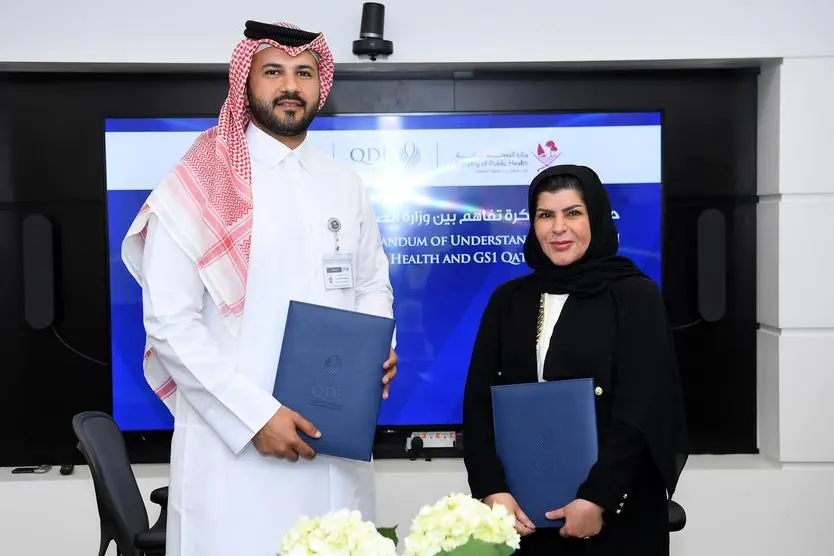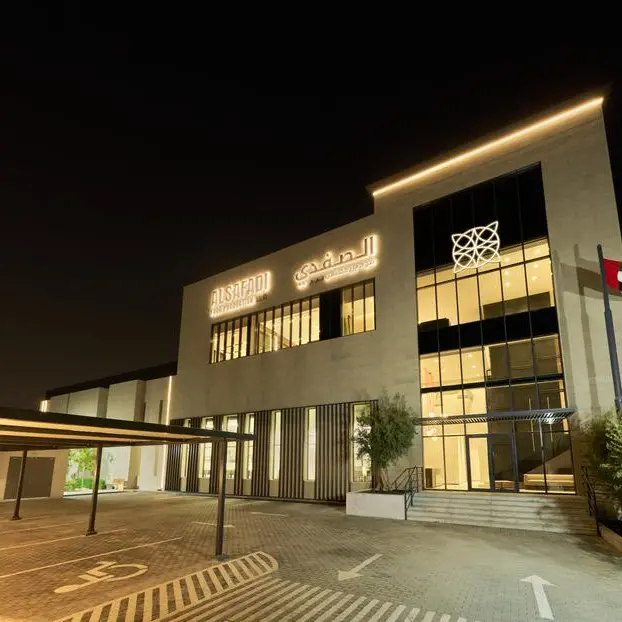PHOTO
Doha, Qatar: Qatar’s pharmaceutical supply chains will undergo a fundamental transition thanks to a joint initiative between the GS1 Qatar Office, an entity operating under the umbrella of Qatar Development Bank, and the Ministry of Public Health. The initiative will entail the implementation of the global standard system to regulate and track commercial drug circulation from manufacturers to patients by implementing a two-dimensional barcode and serial coding system for locally-manufactured and imported pharmaceuticals.
The joint initiative will enhance the performance and efficiency of Qatar’s pharmaceutical supply chain operations throughout all stages, ensuring the authenticity of drugs circulating in the market, and optimizing both the delivery of medicines to patients, and the withdrawal of drugs from the market when needed.
Commenting on the initiative, Dr. Aisha Al-Ansari, Director of Pharmacy and Drug Control Department at the Ministry of Public Health, said the Ministry is constantly striving to improve and develop healthcare services and bolster the medical sector in line with the Qatar National Vision. “In this context, we took the initiative to strengthen pharmaceutical supply chains in Qatar in cooperation with Qatar Development Bank represented by the GS1 Qatar Office. We look forward to this initiative having a positive impact on fields related to the manufacturing, supply and distribution of pharmaceuticals in the local market, in addition to promoting Qatari medical products in global markets.”
Dr. Hamad Salem Mejegheer, Chairman of the GS1 Qatar Office, said the initiative falls in line with the bank’s efforts to build partnerships and collaborate with various state institutions to develop local industries, support and protect local products, and promote them in foreign markets, contributing to the diversification of Qatar’s economy. "Our partnership with the Ministry of Public Health will enable the regulation of the commercial circulation of medicines in line with international requirements and legislation, and improve drug supply chains across the country in compliance with international standards."
Through this initiative, pharmaceutical companies in Qatar will have the opportunity to access training programs on the global standard system for numbering. Awareness sessions will also be held to introduce commercial partners in the medical sector to the benefits of using barcodes to identify goods and merchandise, drawing from the experience of other countries in applying the system.
Healthcare partners in Qatar, including manufacturers, distributors, hospitals and pharmacies among others, will also be able to secure membership in the GS1 Qatar Office, which provides all required information to apply these standards while securing access to the electronic portal services that enables them to manage all requirements.
The process of applying two-dimensional barcodes and serial numbers on pharmaceutical packages enables the tracking and marketing of national products both locally and overseas, which contributes to boosting the healthcare industry’s exports, as well as the regulation of products and services in local markets. The GS1 Qatar Office is the authority responsible for issuing international barcodes to identify Qatari products and services with unique numbers globally through the use of the (630) code reserved for Qatar, establishing a unified language for commercial exchange operations locally and overseas.
About Qatar Development Bank (QDB):
Qatar Development Bank (QDB), previously known as Qatar Industrial Development Bank, was established in Qatar in 1997 by Emiri Decree No. 14 as a developmental organization with the primary objective of fueling industrial growth and driving the private sector’s economic diversification. Over two decades of transformation, QDB has reinvented itself to become the main supporting arm for Qatar’s private sector and a powerful catalyst for socio-economic development through three access-based pillars to SME and private-enterprise support: Access to Finance, Access to Markets, and Access to Capability.
The Bank’s whole-journey support system covers various financing schemes and consultation services that include marketing, legal advice, booking, mentoring and development, grants and accreditation, and capacity-building platforms. This has allowed QDB to become the SME’s growth partner from ideation to fruition, meeting their aspirations at every stage in order to compete at the national and global levels, while improving the economic development cycle and bringing the country closer to realizing its national vision for 2030.
Today, the Bank and its subsidiaries are building on Qatar’s rich legacy of socio-economic achievements by taking a brave leap into the future and focusing on the digital transformation of the country’s SME and business ecosystems to usher entrepreneurs and SMEs into the new economy, embrace emerging opportunities, and steadily transform QDB into a digital bank of the future and a lighthouse that leads the way for financial and developmental institutions across the region and beyond. For more information, please visit www.qdb.qa



















